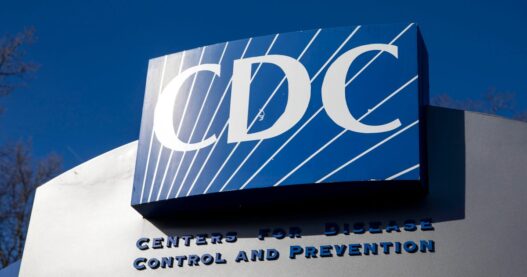The U.S. Centers for Disease Control and Prevention has scrapped a plan to offer help curbing measles in Texas schools after some staff working on the agency’s response to this year’s record outbreak of the virus were warned they could face layoffs, an agency employee said.
CDC officials had initially weighed expanding a service they had been offering to hospitals in Texas — onsite assessments to root out how errors in ventilation and air filtration could be enabling spread of the virus – to other kinds of facilities like schools as well.
“Being on the ground allows us to actually look at the filters that are in place, look at the HVAC systems, how they’re set up, how they’re being used, how they’re being monitored. And after seeing what we did, I’m glad we did,” Dylan Neu, who had led the CDC’s ventilation assessments in Texas, told CBS News.
Neu is a biomedical engineer for the CDC’s National Institute of Occupational Safety and Health, or NIOSH, which was largely eliminated by Health and Human Services Secretary Robert F. Kennedy Jr.’s first wave of layoffs earlier this month.
Two experts from NIOSH — Neu and an industrial hygienist — were first sent to Texas on March 20 at the state’s request. They found a number of issues at hospitals in Texas that had been actively treating measles patients during the outbreak, Neu said.
The agency’s teams do careful inspections of the hospital’s facilities, assessing how air is moving, he said, which can be difficult to accurately do over the phone with people unfamiliar with the technical details of how HVAC systems work.
In one example, an isolation room at a hospital was found to have been pressurized wrongly, with air flowing out of the room with the measles patient, Neu said. Another hospital had skipped a key step in setting up an air filter in their waiting room: unwrapping the filter before turning it on.
“They might say in an interview, ‘Yeah, we purchased HEPA filters. They’ve been running in the waiting room.’ But if they’re not actually out of the plastic bag, they’re not doing what they think they’re doing,” Neu said.
While Neu remains on the job for now, he received a notice on April 1 warning him to expect to be laid off by HHS in the coming weeks.
“This action is necessary to align our workforce with the agency’s current and future needs and to ensure the efficient and effective operation of our programs,” Neu’s notice from the department said.
Neu said he received the notice while in his hotel room in Texas, as he prepared to return from his deployment. Most of his colleagues and the leadership above him within NIOSH have either been laid off, offered reassignments to other agencies or warned to expect cuts.
“My current understanding is that I’ll be working in the office until the end of this month, and then I’ll be on 60 days administrative leave until June 30th, and then we’ll be separated at that point,” he said.
Agency officials scrapped plans to offer future ventilation assessments to Texas, he said, because of the prospect that he might get laid off while in the field and cut off from the agency’s systems.
A CDC spokesperson did not immediately respond to a request for comment.
While much of the work Neu’s team does at NIOSH is research, he said that experts on his team have often been tapped to deploy to emergency responses as the agency’s primary experts on topics like ventilation and contamination.
He recounted several past deployments, ranging from helping hospitals around the country draw up plans to prepare for Ebola cases during the Obama administration, to helping the agency’s quarantine station at Detroit’s airport build an isolation room to screen passengers early during the COVID-19 pandemic.
“We’re involved in pretty much every response the CDC is involved in. Especially if there’s some sort of engineering or ventilation component, NIOSH gets called in as that scientific expertise,” he said.
The layoffs have also upended other work done by NIOSH to respond to requests like health hazard evaluations, where workplaces can call on the agency for help investigating health issues on the job, like cancer clusters or fungal outbreaks.
Impact on the CDC’s measles response also goes beyond NIOSH. CBS News previously reported that multiple agency staff assigned to the effort had been let go.
An official said Tuesday that the CDC was now “scraping to find the resources and personnel needed to provide support” to Texas and other states now facing outbreaks.












